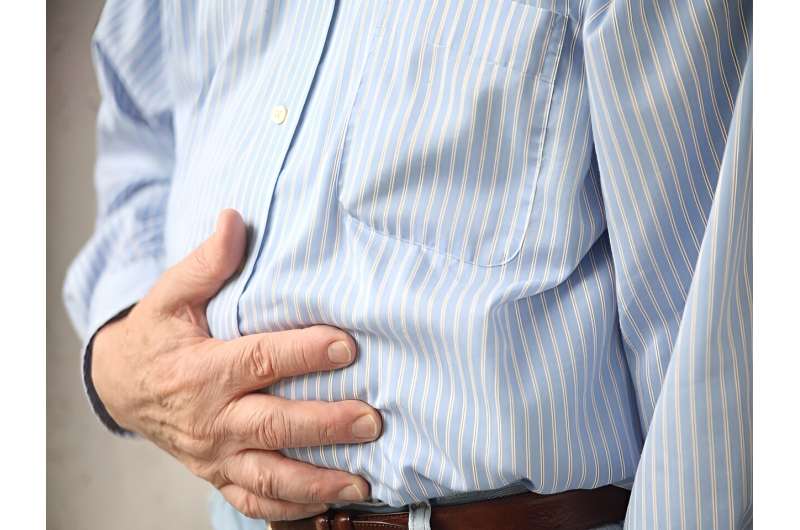Patients with inflammatory bowel disease (IBD) and high visceral adipose tissue (VAT) may have more difficulty achieving higher infliximab levels necessary to achieve remission, according to a study published in the November issue of the American Journal of Gastroenterology.
Andres J. Yarur, M.D., from Cedars Sinai Medical Center in Los Angeles, and colleagues assessed whether VAT burden may be associated with infliximab cutoffs associated with efficacy in patients with IBD. The analysis included 142 patients with IBD receiving maintenance infliximab therapy.
The researchers found that the optimal trough levels of infliximab cutoffs associated with steroid-free deep remission and endoscopic remission were 3.9 μg/mL (Youden Index [J], 0.52) for patients in the lowest two VAT quartiles (<1.2 percent). For patients in the highest two VAT quartiles, the optimal infliximab-level cutoff associated with steroid-free deep remission was 15.3 mcg/mL (J, 0.63). Only VAT percentage and infliximab level remained independently associated with steroid-free deep remission (odds ratio per percentage of VAT, 0.3; odds ratio per μg/mL, 1.11).
"Patients with IBD and a higher VAT burden may require a higher infliximab exposure to achieve clinical and endoscopic remissions," the authors write. "Although the exact mechanism is still unclear, clinicians should consider aiming for higher drug concentrations before abandoning infliximab in a nonresponder with a higher VAT burden."
Several authors disclosed ties to the pharmaceutical industry.
More information: Andres J. Yarur et al, Patients With Inflammatory Bowel Diseases and Higher Visceral Adipose Tissue Burden May Benefit From Higher Infliximab Concentrations to Achieve Remission, American Journal of Gastroenterology (2023). DOI: 10.14309/ajg.0000000000002330
Copyright © 2023 HealthDay. All rights reserved.























